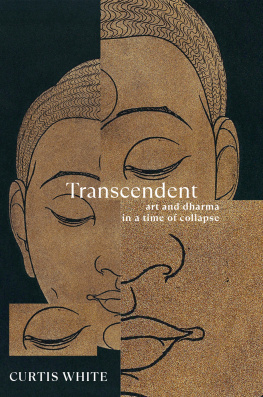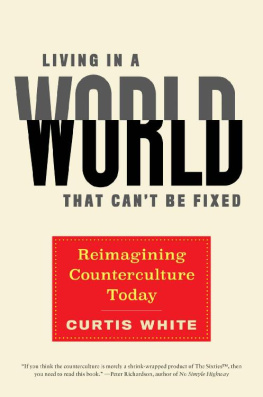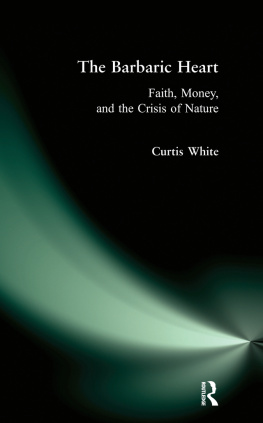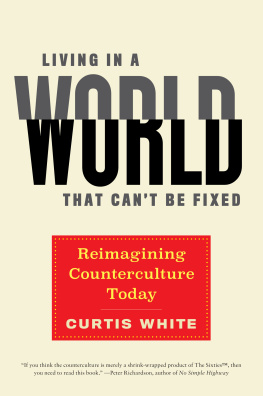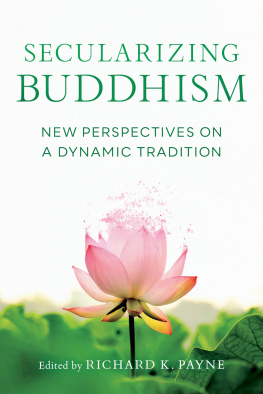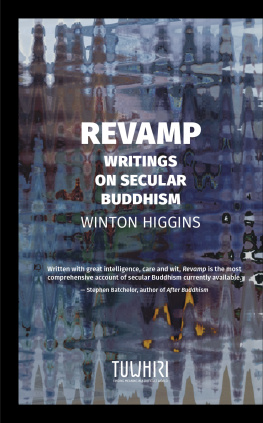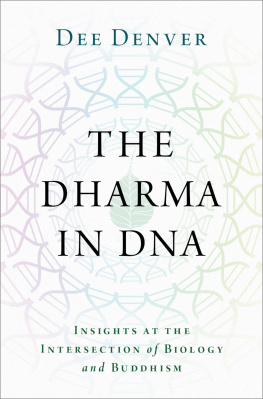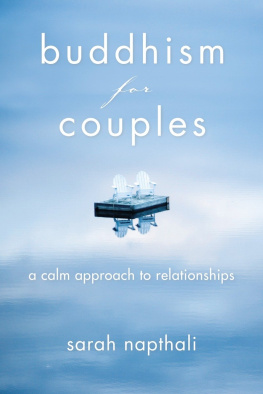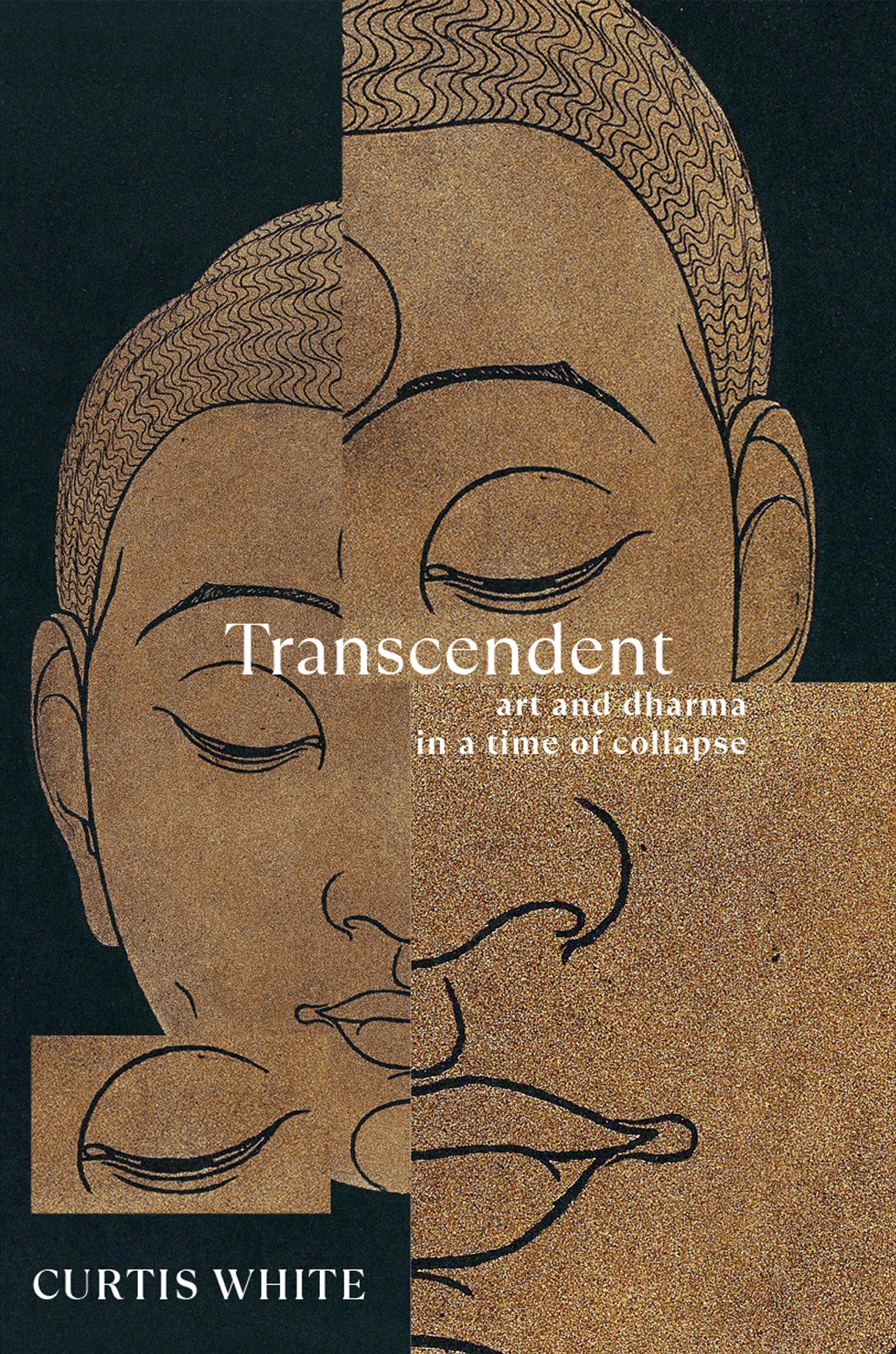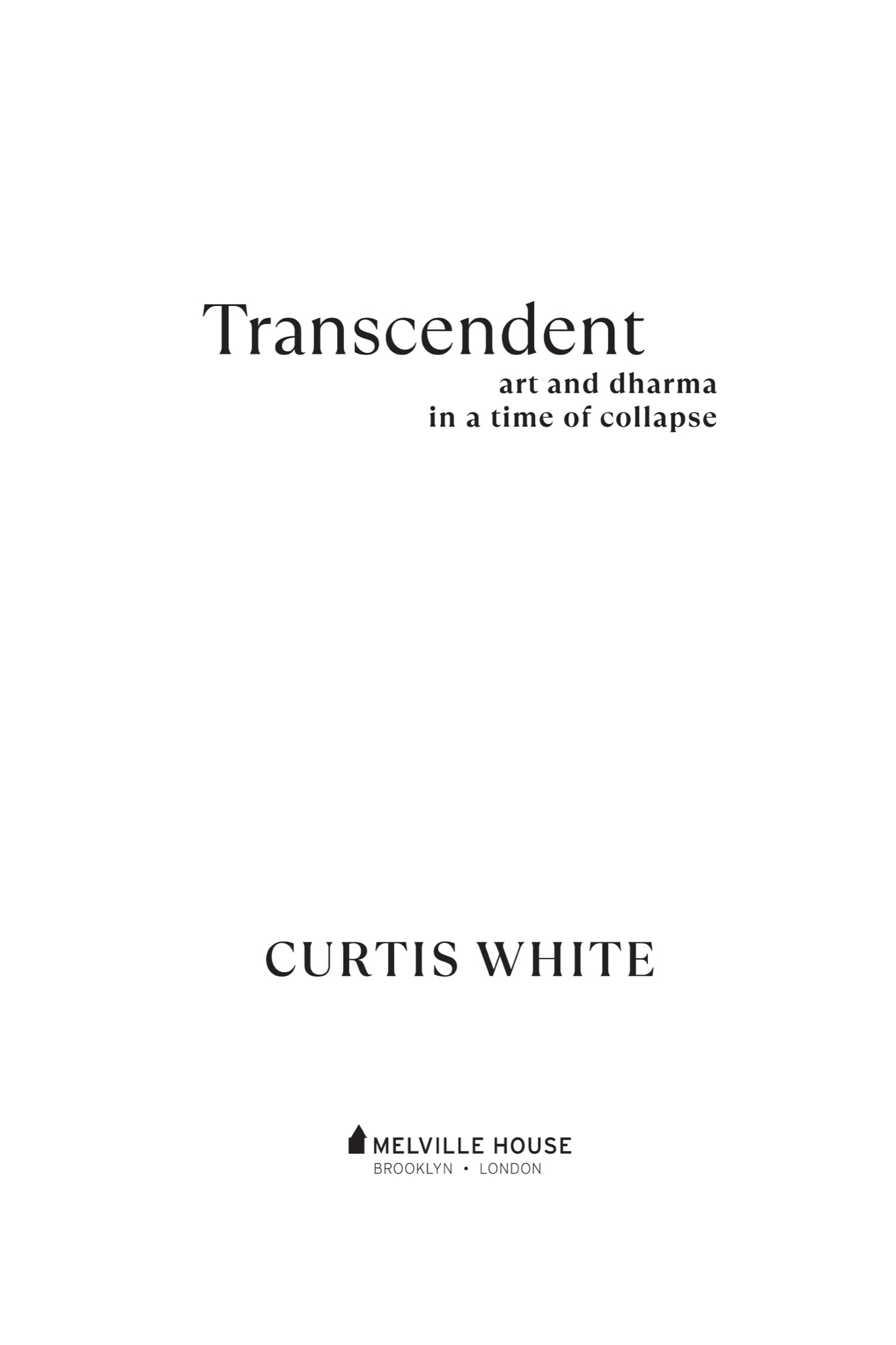Also by Curtis White
NONFICTION
Monstrous Possibility: An Invitation to Literary Politics
The Middle Mind: Why Americans Dont Think for Themselves
The Spirit of Disobedience: Resisting the Charms of Fake Politics, Mindless Consumption, and the Culture of Total Work
The Barbaric Heart: Faith, Money, and the Crisis of Nature
The Science Delusion: Asking the Big Questions in a Culture of Easy Answers
We, Robots: Staying Human in the Age of Big Data
Living In A World That Cant Be Fixed: Reimagining Counterculture Today
FICTION
Heretical Songs
Metaphysics in the Midwest
The Idea of Home
Anarcho-Hindu
Memories of My Father Watching TV
Requiem
Americas Magic Mountain
Lacking Character
Here in America we cannot define Zen Buddhists the same way we do in Japan. I think you are special people and want some special practice that is not exactly priests practice and not exactly laymens practice. You are on your way to discovering some appropriate way of life.
Prologue: The Hard Problem of Art

I.
I was recently listening to Father John Mistys first album Fear Fun on Spotify, and I noticed something that intrigued me. The songs I liked best were by a wide margin the favorite songs of many millions of other listeners. Nancy From Now On had fifty-two million listens. Hollywood Forever Cemetery Sings had forty million listens. But most other tracks on the album had only four to seven million listens. So I asked myself, Why is that? Not Why do the songs have different counts but Why am I in such complete agreement with millions of other listeners about what the most-worthy songs are on this album?
Perhaps its that the songs with smaller numbers are a reflection of how many people have listened to the entire album straight through, and that the staggeringly larger numbers represent repeat listensmany repeat listens. These songs are on heavy rotation. They are algorithmic hits. So, I wondered, What is it about those songs that makes people want to listen to them again and again? Ordinarily, we might explain it by simply saying theyre better or that we love that song so much! Or we might say, as many a music reviewer will, that they are the best cuts, as if that explains something. Or we avoid the problem by believing these numbers dont reveal anything other than the arid fact that, for a short while, the songs trended or went viral or were shared on many playlists, a regular contagion of enthusiasm that is otherwise meaningless, a mere epiphenomenon of the digital age.
Or could it be the more complicated idea that those songs are more popular because of neurology? That quite on their own, our brains experience major keys as positive and energetic, and minor keys or flatted keys like Db as introspective and sad, and a few of Mistys songs just happen to hit the neurotransmitter sweet spot. And so the skillful manipulation of major and minor keysfrom which The Beatles crafted song after song, as in Ill Cry Instead, which moves so cunningly between G-major and a B-minor bridgecan produce a song that has been enjoyed for half a century and counting. In other words, the popularity of certain songs is only about a sort of biological demagoguery, our neural wiring saying, You will like this song, a pleasure pill provided courtesy of dopamine. Maybe thats what we mean when we say, That song is dope, man.
Or is it possible to say there is something mysterious happening within music, including popular music, something that surpasses easy understanding? Is it that Hollywood Cemetery has soul? Does it have what Jack Kerouac called IT, the ineffable, unknowable, unnamed-able moment in a sax solo where the jazz soars, finds a certain note and holds it, hoping never to let go? Is it that this quality of IT unites us all somehow and that this unity is reflected even in Spotifys debased number-chasing? Why does it feel to us that listening to this music is not something that we do, but something that happens to us? In which case, its not about numbers or brain chemistry at all. Its about Chuck Berrys Dionysian roustabout song Rock and Roll Music: dancing, drinking from wooden cups, listening to my man wail on the sax, everybody shook up. Or consider the experience of singers in a gospel choir. Theres nothing mysterious in their singing. Its right there. The choir feels that spirit moving through it and theyre rightit is spirit welling up, spilling over, and put into our laps.
These are questions classical musicians and composers take seriously, too. I once had a conversation with Bill Cutter, composer and choral director at MIT. He pointed out that the big question is: How do we know that the acknowledged masters of classical musicBach in particularare better than other equally skillful but minor composers? Tartini is very good, Scarlatti is better, but Bach seems to have discovered the resonant secret to musical meaning. But how do we know Bach is better? And what do we mean by better?
This is the problem the poet Robert Browning riddled in his dramatic monologue about the Renaissance painter Andrea del Sarto. Del Sarto was a superior technician, but he envied Rafael because he reached a heaven thats shut to me. Del Sarto was il miglior fabbro, the better technician, while Rafael was flaming out his thoughts/Upon a palace-wall for Rome to see. What del Sarto couldnt understand was the flame, like the flame emerging from the head of a Thai Buddha. All he got for his efforts was a beautiful woman with expensive tastes who distracted him from anything blazing.
Like Browning, Cutter wondered about our emotional response to music when no explanation for that response can be reasonably articulated. He said:
I still cry every time I hear the second movement of the Ravel Piano Concerto in G. There is something intensely personal and profoundly sad about its meandering E major tune. No amount of musical analysis can address this. thank God. Im sure you know that famous Stravinsky quote, Music is, by its very nature, essentially powerless to express anything at all. Hes rightand thats whats so magical and baffling!
Arnold Schoenbergthe last of the Wagnerians, and the first of the modernistsagreed with Cutter and Stravinsky in writing: Music does not express the extra-musical, but he added, the composer conceives an entire composition as a spontaneous vision. But a vision of what? Not of the music as the mathematical progression of chords and rhythms, because the composer does notadd bit by bit, as a child does in building with wooden blocks. For Schoenberg, music is not in any way a mechanism, although it may be for the individual musician, busily counting and watching the conductors baton. For Schoenberg, musicians may be artists, but the composer is a

